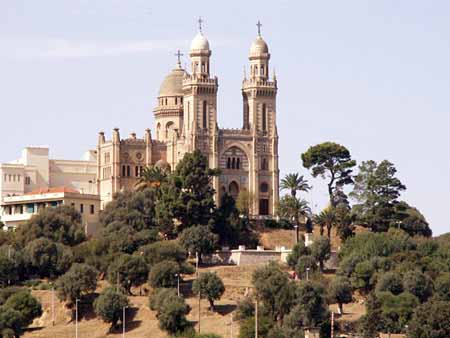On the 14th January just gone, news agencies were clamouring that Biserta, one of the oldest and most European of Tunisian cities, was being sacked. What was taking place all over Tunisia began to spread to other countries in the region. The shouts that sounded in that same city 1600 years ago were the same as those of today: “Who doesn’t like concord? It is a pity that it is so rare: everyone praises it yet very few want to practise it”. These words were spoken by a visiting bishop in 411 who had been invited to the opening of the cathedral of Biserta.
The bishop was Augustine, bishop if Hippo, then called Hippo Regius. He had been invited by Florence, bishop of Biserta, then called Hippo Diarrhytus. Today these cities are in different countries: the former in Algiers and the latter in Tunisia. However both have always been important Mediterranean ports. Perhaps that is why they are twinned today.
Obviously Augustine couldn’t predict today’s disturbances. He was simply putting into words a constant desire of the human heart and it seems, of the land of north Africa where he had been born and had lived most of his life. Today there is the Tunisian rebellion; then Augustine was speaking of the confrontations between Catholics and Donatists and also of other divisions within the Church. At the end of his life it would be the vandals who wreaked havoc along the north of Africa. Later it would be the turn of the Arabs and then others and others…..
A sense of history
On the front pages of the world press with their modern Arab names we have many of the towns Augustine would have passed through and where he even lived. The Roman ruins that remain in many of them beginning with Carthage and even Hippo itself, are silent witnesses to the never ending human story, woven from battles, injustice, hatred and revolts.
From the depth of the human heart, from the roots of the Christian faith the powerful and clear voice of Augustine swells to unravel the meaning of history and to point to the horizon where humanity is to go which is none other than God.


North Africa in the V century, in St. Augustine’s time. St. Augustine returned to Biserta at least one more time due to the illness and then death of his friend bishop Florence in 419. He had to preside over the funeral in the same cathedral he had opened. This time emotions hardly allowed him to speak. His words were words of consolation that carry within the key that attempts to explain all our human comings and goings, all our rebellions, even the “jasmine revolution”: “Brothers and sisters, you look to me to console you but I also am in need of consolation. And our common consolation comes from no human source but from the One who fashions us for only the one who creates can recreate.”



